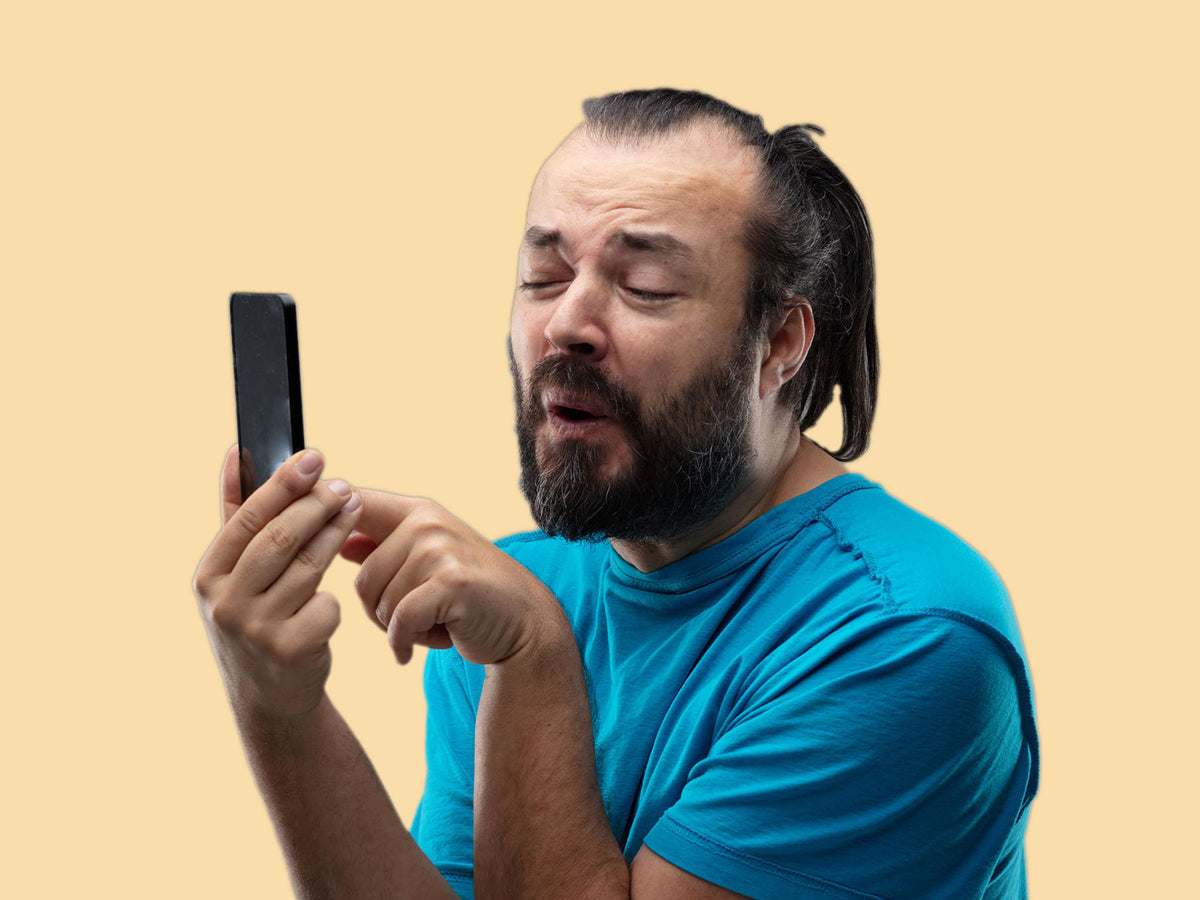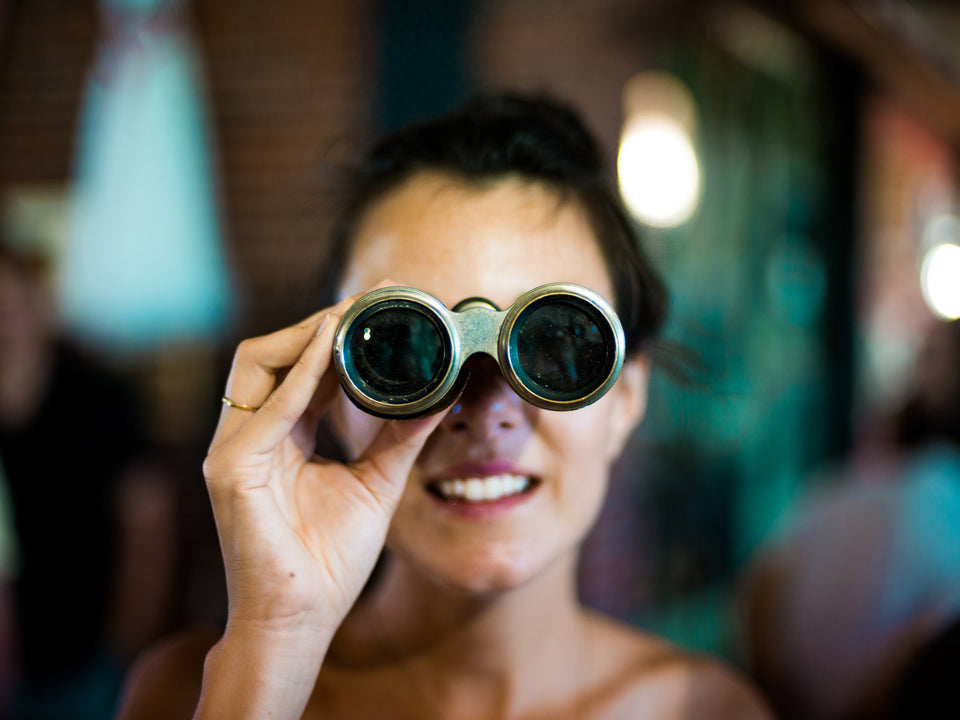As a lot of us are moving into our homes and away from our workplaces for work, we’re spending more time staring at screens. Now, on top of everything else, we’re conducting meetings through screens, chatting to our colleagues through screens and, after a hard day’s work staring at screens, lots of us are choosing to unwind with an evening watching screens, whether that’s the TV or scrolling through social media.
So what does all this screen time mean for our eye health? Well, excessive screen time isn’t great for your eyes. Symptoms of overdoing the screen can include eye fatigue, where your eyes get tired and your vision doubles or blurs. As you naturally tend to blink less when you’re staring at the bright screen light, your eyes can become dry and irritated. You might even suffer from a loss of eye flexibility, which means you struggle to adjust the focus of your eyes.
Other problems with screens happen because of the type of light that they emit. If you’ve been glued to your phone, tweeting well into the night, you might have noticed that it’s difficult to get to sleep for a while after. That’s because the type of light from your phone screen or computer contains blue light which suppresses the natural production of melatonin, the chemical which helps you get to sleep.
So what can you do? Well, in today’s world, it’s not really an option to give up screens completely but neither is it necessary. Screens aren’t bad for your eyes, but overdoing using them or using them in the wrong way can be. We’ve had a think of a couple of changes to your routine and to your home-working set up that will benefit your eyes and reduce some of the negative symptoms of screen time.
Take a break
It might seem like one of the more obvious solutions, but taking a break away from the screen really is the best way to let your eyes recharge. It is important to consider how you’re taking a break, though. If you’re stepping away from the computer and heading straight for the phone on your lunch break, you’re not really letting your eyes rest at all. Taking a screen break means taking a break from all screens, not swapping them.
If you want to really give your eyes a rest, head outside. Countless studies have proved that heading outdoors, into nature if possible, and getting a dose of natural light is the best place to recuperate, not just for your eyes but for your mind too. With the days shortening too, it's more important than ever that we're getting out in daylight, so take your screen breaks at lunch. Marc Berman at the University of Michigan found that simply going and walking around your local park just for an hour can improve memory performance and attention spans by 20 per cent. Sounds good, doesn’t it?

Adjust Your Work Set Up
As well as making sure you’re taking rests from using screens, you can also mitigate negative side effects of screen use by having a look at how and where you’re using them.
One of these factors is screen brightness. Your screen shouldn’t be brighter than the surrounding light of the room you’re using it in. If it is, you’ll be straining your eyes. A lot of computer and laptop screens have a setting that can adjust the brightness of the screen. Use that to make the screen dimmer or, if you can’t, adjust the lighting in the room so the screen isn’t the brightest source of light.
You should also avoid getting too close to your screen. Make sure the screen you’re using is always around an arm’s length or 40cm away. Any closer and your eyes are going to be working really hard to see the screen which can also harm them.
Turn off devices well before bedtime
As we already mentioned, the blue light in your screen affects the triggering of the chemicals in your brain which help you get to sleep. If you’re staring at your phone before you go to sleep, your brain’s getting signals to tell it not to release melatonin so you’re going to find it harder to nod off.
An easy way of preventing your phone’s blue light from keeping you up is to not use your phone for at least an hour before bed. Leave it downstairs, put it in a draw, lock it in the nearest safe. Do whatever you’ve got to do.
Another simple way of avoiding blue light is to turn on the blue light filter on your phone. Have a look at your phone settings and see if you can turn it on after a certain time or keep it on for the whole day. This is such a simple fix and it will most probably go unnoticed, so give it a try.

Consider new lenses
Did you know the type of lenses you have on your glasses can help reduce the strain on your eyes from using screens? Yep, they can. Here are some of the lens coatings we offer that will help mitigate the stress your eyes are under from too much screen use.
Premium lens coating
The anti-reflection coating that we add to all our premium lenses is what’s known as a broad spectrum coating. That means it cuts off reflections from all wavelengths of the visible light spectrum. It performs excellently for all aspects of your vision including night time driving and in all artificial light conditions.
Blue filter lens coating
We also have an option for adding a blue filter onto lenses. These still reflect light but concentrate on the blue (low) wavelength. This stops most of the harmful, lower wavelength light getting into the eye and that helps reduce some of the issues mentioned above, including eye strain and brain stimulation.
We don’t recommend it for everyone, though. The blue filter does change how you perceive white. If you reflect blue light away, things that would normally be white like documents start to look a little off-white, kind of like a (very) mild sepia effect. These lenses are also not quite as good for driving.
Enhanced reading lenses
Occupational lenses, or enhanced reading lenses, are amazing for those of you wearing reading glasses or varifocals. The lens technology gives a smooth blend of two focal points so the lens performs perfectly from reading distance - e.g. books, phones, details - all the way out to 1-2m distance, covering all screens and giving you the flexibility to leave the glasses on should you be talking to someone while sat at a desk or table.
Why are they so amazing? the modern lifestyle's demands on the eyes are tough. There's so many short distances to focus on and so much detail to take in. This lens opens up all those areas and makes them crystal clear with little demand for you to move your head around and they're supremely comfortable to wear for hours of screen and digital use. Combine with the blue filter, and kapow, you have a brilliant pair of glasses to reduce and, hopefully, eliminate any eye strain with your new working regime.
Upgrade Your Lenses
During the last 6 months we have recommended those products more than we ever have before simply because there is a vast increase in clients with eye strain calling in for our advice and help.
If you want to discuss how we can help you enhance your visual experience and reduce your visual fatigue, get in touch with us via info@seen.co.uk, book an appointment with us at Seen HQ in Manchester using this handy form, or just tick the ‘quote for prescription lenses’ check box when you check out and we’ll send you over everything you need to know.







